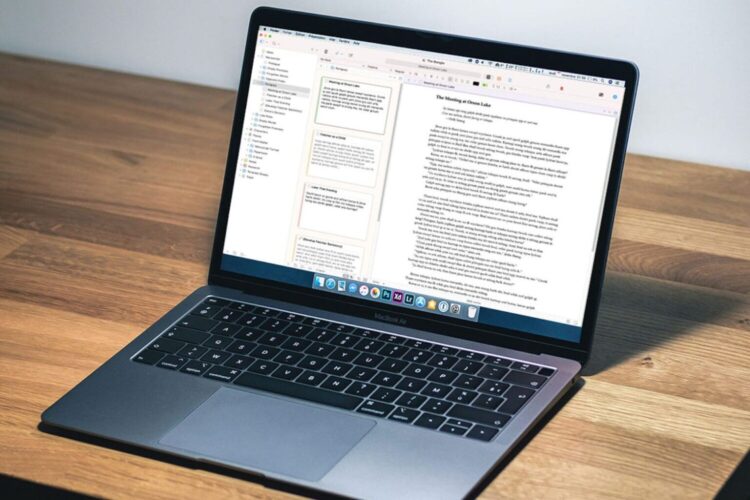Every writer begins somewhere. Maybe it’s a love for storytelling, maybe a strange obsession with grammar rules, or perhaps you simply want to channel your inner Hemingway. Wherever your dream began, the question isn’t “Why?” It’s “How?”
Starting doesn’t require a grand gesture. No expensive courses. No mysterious rituals involving ink and candlelight. Just a plan. Let’s cut through the noise and get right to it.
Key Points
- Writing starts with practice, not perfection.
- Read often to learn structure and style.
- Choose a niche that excites you.
- Set realistic goals and stick to them.
- Tools can help, but discipline is key.
Step 1: Do You Love Words or Just the Idea of Being Famous?

Be honest with yourself. Do you love crafting sentences, building worlds, and choosing the perfect verb? Or are you enamored with the idea of signing books, attending book signings, and basking in Instagram glory?
Here’s the hard truth: the glamorous side of storytelling comes later—if ever. The day-to-day process is about sitting down and putting one word after another. It can be messy, frustrating, and far from glamorous.
If you don’t genuinely enjoy words and creating meaning out of them, the journey may feel more like a chore than a passion. Fame might be a tempting motivator, but it rarely sustains anyone in the long run. Passion for storytelling is your fuel.
Step 2: Write What You Love to Read
What’s your go-to book genre? Do you devour thrillers? Obsess over fantasy worlds? Laugh until your sides hurt reading comedic essays? Whatever it is, that’s where you should begin.
Creating something you’re excited about makes the process more enjoyable and natural. You’ll know the rhythms, tropes, and language because you’ve already spent hours immersing yourself in that world.
Imagine you’re a fantasy enthusiast. The idea of building magical kingdoms or weaving together epic adventures excites you. Tools like My Adventures can inspire you to explore endless storylines and hidden details, giving your imagination a boost. That energy translates to your own work, helping you stay motivated and creative.
Step 3: Read Like It’s Your Job

Want to write well? You have to read. There’s no shortcut.
Reading is more than just entertainment. It’s your education. You absorb structure, dialogue, and pacing. You learn what works and what doesn’t.
Start analyzing your favorite books. Pay attention to what hooks you in the first paragraph. Notice how the plot twists feel inevitable yet surprising. See how the ending ties everything together. Reading actively helps you understand the mechanics behind great storytelling.
Make it a habit. Read books, articles, and essays in your chosen genre, but don’t stop there. Exploring a variety of styles and voices broadens your perspective.
Step 4: Set Goals That Don’t Scare You
Dream big, but start small. Setting unrealistic goals can crush your enthusiasm before you even begin.
Instead of declaring, “I’ll write a 100,000-word novel by next month,” break it down into bite-sized tasks:
- Write 300 words a day.
- Finish one short story in a month.
- Edit a chapter each week.
Achieving small goals builds confidence. Each success fuels your motivation, making larger projects feel less intimidating. Think of progress as climbing stairs, one manageable step at a time.
Step 5: Use Tools, Not Excuses

Technology offers countless resources to make your journey smoother. But remember, tools can’t do the work for you.
Here are a few worth considering:
- Notion or Evernote: For organizing notes, ideas, and research.
- Scrivener: Designed for long projects like novels or screenplays.
- Grammarly: Helps polish your grammar and sentence clarity.
These tools can streamline your process, but they won’t replace discipline. The best app in the world won’t matter if you don’t sit down and get to work.
Step 6: Embrace the Messy First Draft
Perfectionism is the enemy of progress. The first version of your work doesn’t have to be good—it just has to exist.
Think of your first draft as a rough block of clay. It’s lumpy and unrefined, but it’s something to shape and polish. Worrying about every sentence being perfect will only slow you down.
Write freely, knowing that editing is where the magic happens. Your future self will thank you for getting words on the page without overthinking every detail.
Step 7: Find Your Niche and Stick to It
A niche isn’t a restriction; it’s a compass. Choosing a focus gives your work clarity and makes it easier to attract an audience.
What excites you? What could you write about endlessly without getting bored? That’s your niche.
Whether it’s food, travel, or personal growth, narrowing your focus helps you stand out in a crowded field. Readers connect with authenticity, so pick a subject you’re genuinely passionate about.
Step 8: Share Your Work

Putting your work out there can feel terrifying, but it’s a vital step. Feedback is your greatest teacher.
Start small. Share with friends, join a writing group, or post on forums. Constructive criticism helps you see your blind spots and improve faster.
Remember, even the harshest feedback isn’t personal. It’s an opportunity to grow. With every critique, you get closer to mastering your craft.
Step 9: Build a Routine That Works for You
Consistency beats inspiration every time. Waiting for the perfect moment to start is a recipe for procrastination.
Pick a time each day to work on your craft. Mornings, evenings, lunch breaks—whatever fits your life. The key is showing up regularly.
Even a small daily effort adds up over weeks and months. Routine creates momentum, and momentum fuels progress.
Step 10: Don’t Fear Rejection
Rejection is a rite of passage. It’s proof that you’re putting yourself out there and taking risks.
Every storyteller, no matter how successful, has faced rejection. It doesn’t define your talent or your potential. Instead, see it as feedback and motivation to keep improving.
Learn from every “no” and celebrate every step forward. Success comes to those who persist.
Conclusion: Your Journey Starts Now

There’s no magic formula for becoming a great storyteller. It’s about starting small, staying consistent, and learning along the way.
Pick a genre you love. Read often. Write daily, even when it feels hard. Use tools to streamline your process, but never rely on them to do the work for you.
Most importantly, don’t let fear hold you back. Your story is waiting to be told. So, what will your first sentence be?
 Hi Boox Popular Magazine 2024
Hi Boox Popular Magazine 2024



